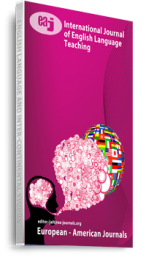Currently, the educational field emphasizes on the teaching and learning that is competence based. This article examines how Bloom’s Taxonomy is applied in formative and summative assessments of Kiswahili language in secondary schools. The article is guided by Vygotsky’s Cognitive Development Theory. Data were collected through interview, documentary analysis and observation. Kiswahili language teachers were involved in data collection. The findings reveal that in assessment of Kiswahili language, the Lower Order Thinking skills is highly applied in formative assessment while the Higher Order Thinking skills is mostly included in summative assessment. The reason behind this is that many Kiswahili teachers lack enough skills on composing HOTs questions, as well as preparing LOTs and HOTs questions based on competence-based approach. Therefore, Kiswahili teachers need more trainings on Bloom’s Taxonomy application in line with competence-based approach; this could be done through workshops, sharing knowledge between teachers within the school, and interschool cooperation
Keywords: Bloom’s taxonomy, Formative assessment, Kiswahili language, summative assessments

